Acidic soils comprise 50% of the world’s potentially arable land. Al stress is known to be the most important factor in limiting the growth of plants in acidic soils Current studies have reported that WRKY transcription factors have a role in regulating the expression of Al resistance genes. Guan and colleagues from Jilin University found two Al-stress-induced WRKY transcription factors, SbWRKY22 and SbWRKY65, in the root apices of sweet sorghum (Sorghum bicolor L.). They sought to determine the response of the WRKY transcription factors to Al toxicity and the underlying mechanisms behind their role in enhancing Al tolerance in sorghum. The researchers discovered that there was a significant difference in the expression patterns of SbWRKY22 and SbWRKY65. While SbWRKY65 showed a quick, short response to Al stress, SbWRKY22 had a more prolonged response. After 3 hours of Al exposure SbWRKY65 had significantly increased, but SbWRKY22 lagged behind. However, by the 24 hour mark the levels of SbWRKY65 had returned to the level of the control group, but SbWRKY22 showed a significant increase at 6 hours and continued to increase for an additional 24 hours. The scientists postulate that these expression differences may be due to differences in cis regulatory targets and their functional mechanisms. The Al tolerance genes SbMATE, SbGlu1, SbSTAR1, SbSTAR2a, and SbSTAR2b, were significantly regulated by SbWRKY22, but SbWRKY65 had a minimal effect on these genes. SbWRKY65 did however significantly regulate the transcription of SbWRKY22. Guan et al. speculated that SbWRKY65 may indirectly regulate Al-tolerance genes by regulating SbWRKY22.
The fact that SbWRKY22 and SbWRKY65 are mainly expressed in the roots and not in the shoots aligns with the fact that damage to root apices and suppression of root elongation are the initial manifestations of Al toxicity in plants. The researchers have further discussed the pathways by which SbWRKY22 influences Al tolerance in sorghum through its regulation of gene expression. They have suggested that secretion of citric acid, degradation of callose, and modification of cell wall components may be among the downstream effects. In fact, in the present study AI tolerance in the sorghum plants was correlated with reduced callose deposition in their roots. The study improves the understanding of the mechanisms behind tolerance to Al toxicity and their results show potential for future breeding programs.
SorghumBase examples:
Sobic.002G418500.1 (SORBI_3002G418500, Sb02g043030, Sobic.002G418500), weakly similar to WRKY transcription factor 47gene is used to explore SorghumBase below.
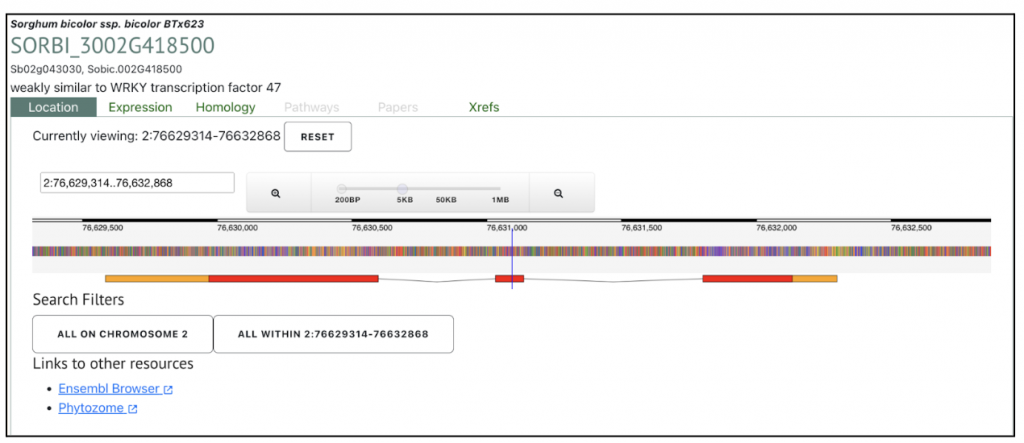
Weakly similar to WRKY transcription factor 47 is displayed in SorghumBase.
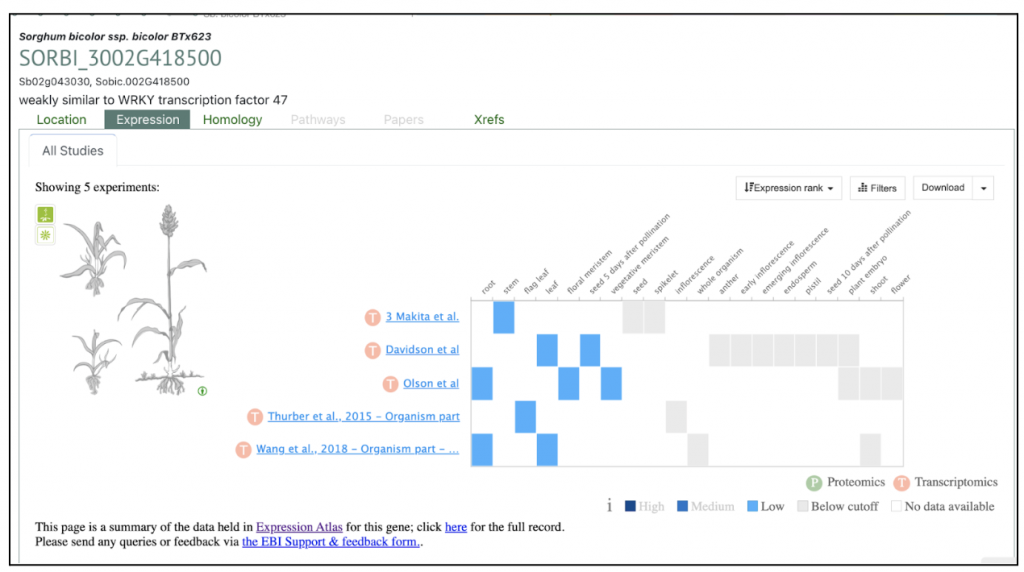
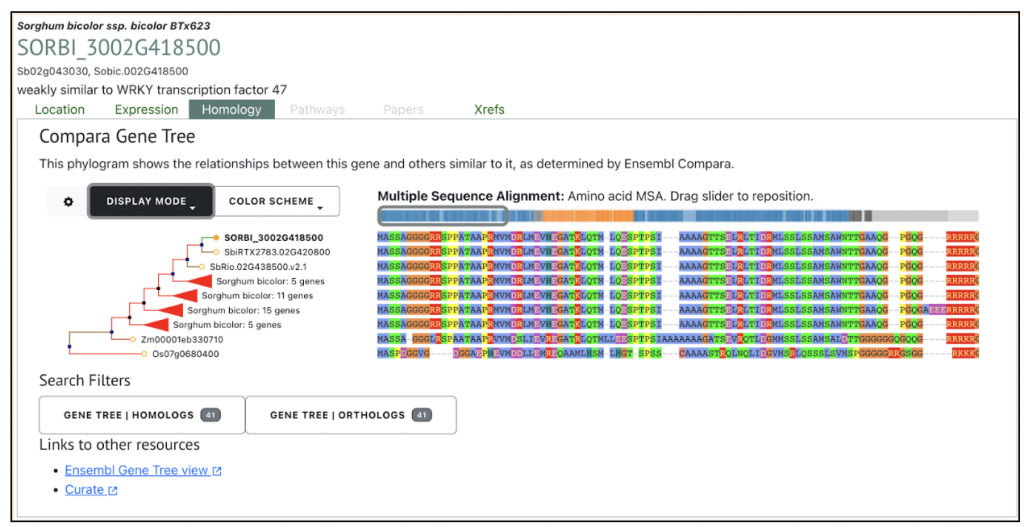
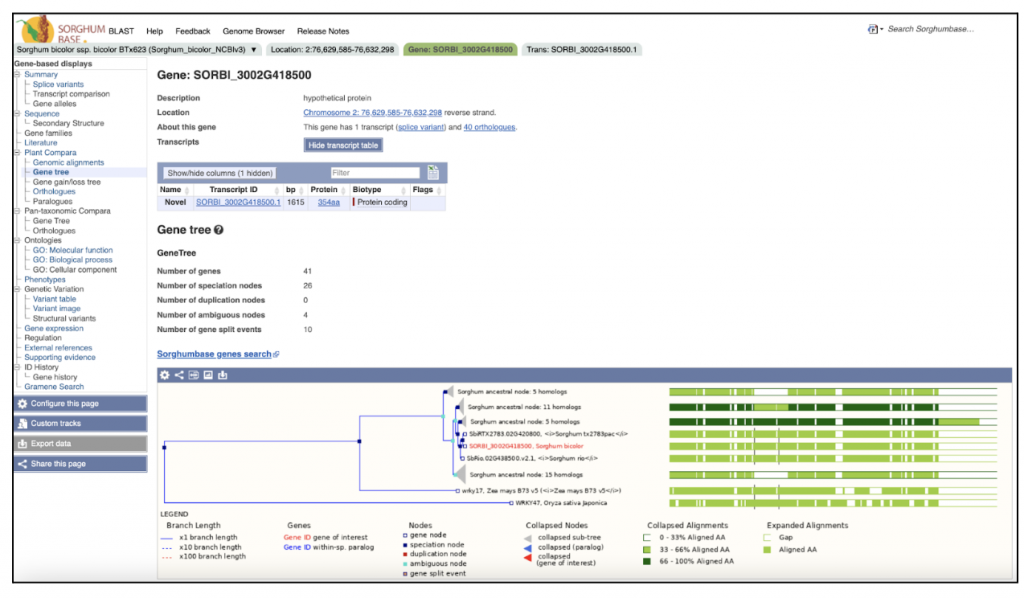
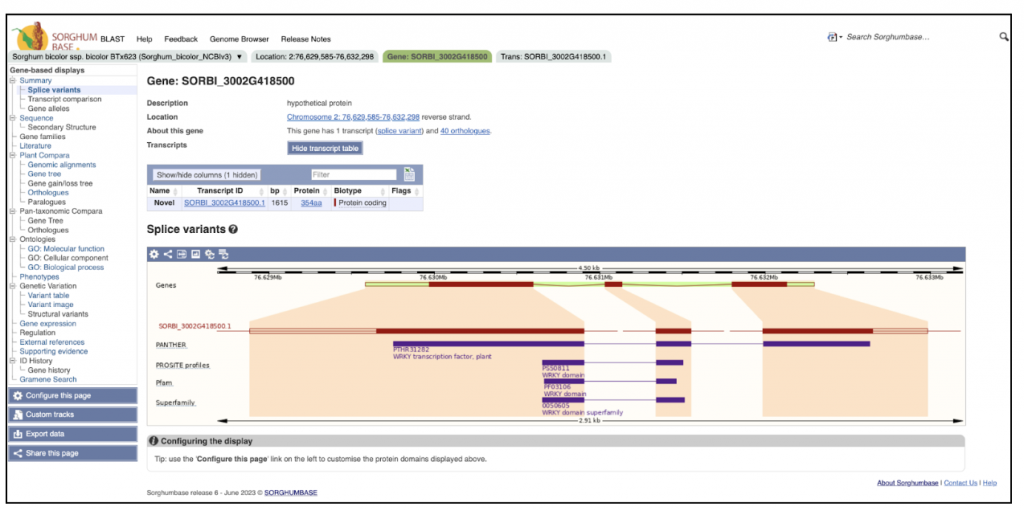
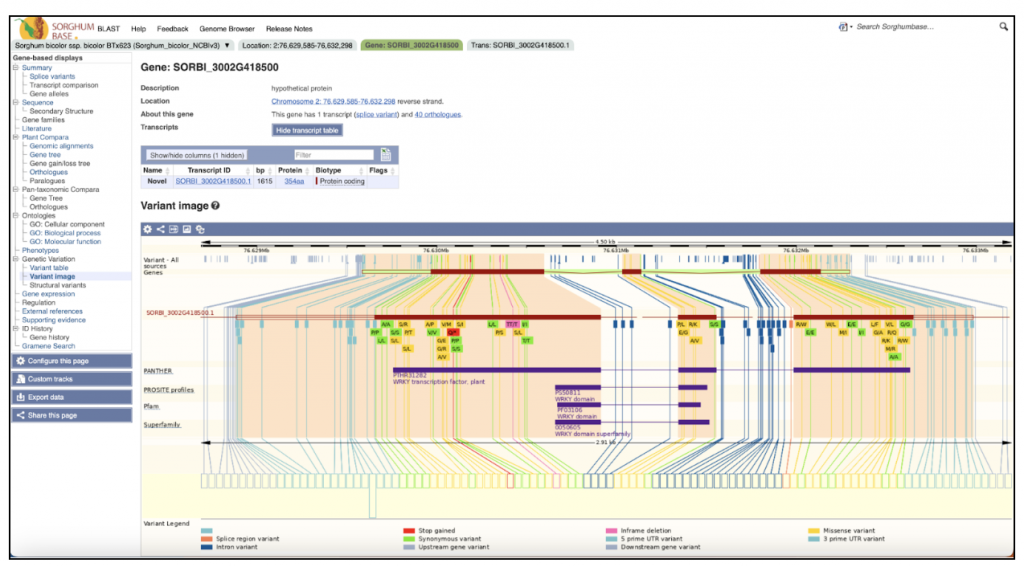
Reference:
Guan K, Yang Z, Zhan M, Zheng M, You J, Meng X, Li H, Gao J. Two Sweet Sorghum (Sorghum bicolor L.) WRKY Transcription Factors Promote Aluminum Tolerance via the Reduction in Callose Deposition. Int J Mol Sci. 2023 Jun 17;24(12):10288. doi: 10.3390/ijms241210288. PMID: 37373435; PMCID: PMC10298921. Read more